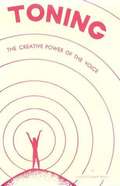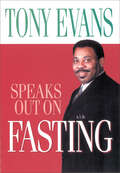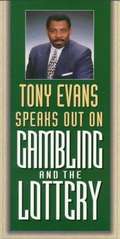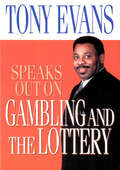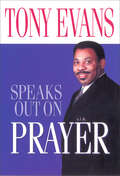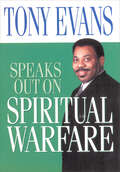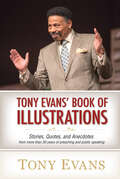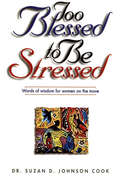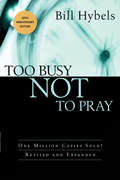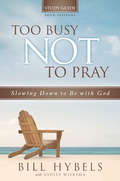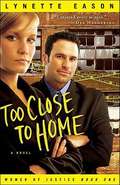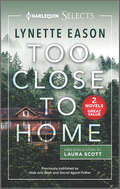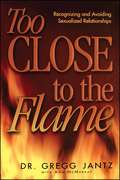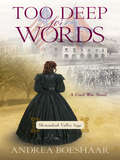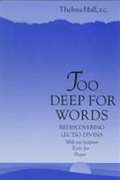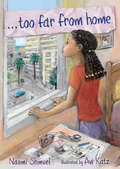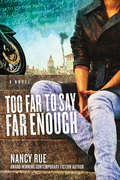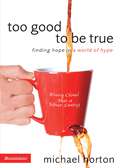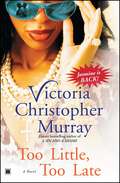- Table View
- List View
Toning: The Creative Power of the Voice
by Laurel Elizabeth KeyesToning is an ancient method of healing, which I hope will be recognized and used with new understanding now that we have more scientific explanations for it. It does not depend upon faith, nor belief in the method, any more than these are necessary to our use of electricity to provide light and energy in our daily living. There appear to be certain natural flows of energy in our bodies and if we recognize them and cooperate with them, they benefit us. Toning is not limited to one's religion, or lack of it. It does not require one's belief. Apparently it is not a "gift" but something available to anyone who goes through the mechanics of letting the voice express itself in a natural way. Anyone who can groan can Tone and experience its benefits. There is no mystery about Toning. It can be understood through material science, physiology and psychology as well as the most ancient concepts of man's relationship to his God. Please try it.
Tony Evans Speaks Out on Fasting (Tony Evans Speaks Out On...)
by Tony EvansThe Christian life isn't very complicated; but we've made it so through our ignorance of principles central to the Christian walk. There are some basics with which people need to be equipped to live a more victorious Christian life. Tony Evans has heard the people's cry for these sometimes difficult principles to be made simple and explained clearly and succinctly. In his new Tony Evans Speaks Out . . . booklet series, Evans tackles four basic elements of Christianity with a clarity and simplicity characteristic of his popular style.
Tony Evans Speaks Out on Fasting (Tony Evans Speaks Out On...)
by Tony EvansThe Christian life isn't very complicated; but we've made it so through our ignorance of principles central to the Christian walk. There are some basics with which people need to be equipped to live a more victorious Christian life. Tony Evans has heard the people's cry for these sometimes difficult principles to be made simple and explained clearly and succinctly. In his new Tony Evans Speaks Out . . . booklet series, Evans tackles four basic elements of Christianity with a clarity and simplicity characteristic of his popular style.
Tony Evans Speaks Out on Gambling and the Lottery
by Tony Evans"Gambling," writes Tony Evans, "is a complex and difficult subject to discuss because it has so many different levels and nuances and perceptions attached to it. But we'd better find out what God has to say about it because lives are at stake. While some readers may expect a simple answer, such as: Don't gamble, ever, in any form. Dr. Evans says, "the question can't be answered that easily, because there's a lot involved. You see, from God's standpoint, all gambling isn't equal. Now that may sound surprising to you, but I will show you what I mean as we go along. "So rather than simply arguing whether to gamble or not to gamble, we need to understand the different types of gambling and find out what is acceptable to God and what is not. Many people don't know the difference."
Tony Evans Speaks Out on Gambling and the Lottery (Tony Evans Speaks Out On...)
by Tony EvansMorality. Relativity. Right and Wrong. These are the complicated issues we face today. Everyone has an opinion, but who has the answer? Tony Evans refuses to let the voice of God be drowned out amidst the clamor of the crowd.
Tony Evans Speaks Out on Gambling and the Lottery (Tony Evans Speaks Out On...)
by Tony EvansMorality. Relativity. Right and Wrong. These are the complicated issues we face today. Everyone has an opinion, but who has the answer? Tony Evans refuses to let the voice of God be drowned out amidst the clamor of the crowd.
Tony Evans Speaks Out on Prayer (Tony Evans Speaks Out On...)
by Tony EvansThe Christian life isn't very complicated; but we've made it so through our ignorance of principles central to the Christian walk. There are some basics with which people need to be equipped to live a more victorious Christian life. Tony Evans has heard the people's cry for these sometimes difficult principles to be made simple and explained clearly and succinctly. In his new Tony Evans Speaks Out . . . booklet series, Evans tackles four basic elements of Christianity with a clarity and simplicity characteristic of his popular style.
Tony Evans Speaks Out on Prayer (Tony Evans Speaks Out On...)
by Tony EvansThe Christian life isn't very complicated; but we've made it so through our ignorance of principles central to the Christian walk. There are some basics with which people need to be equipped to live a more victorious Christian life. Tony Evans has heard the people's cry for these sometimes difficult principles to be made simple and explained clearly and succinctly. In his new Tony Evans Speaks Out . . . booklet series, Evans tackles four basic elements of Christianity with a clarity and simplicity characteristic of his popular style.
Tony Evans Speaks Out on Spiritual Warfare (Tony Evans Speaks Out On...)
by Tony EvansThe Christian life isn't very complicated; but we've made it so through our ignorance of principles central to the Christian walk. There are some basics with which people need to be equipped to live a more victorious Christian life. Tony Evans has heard the people's cry for these sometimes difficult principles to be made simple and explained clearly and succinctly. In his new Tony Evans Speaks Out . . . booklet series, Evans tackles four basic elements of Christianity with a clarity and simplicity characteristic of his popular style.
Tony Evans Speaks Out on Spiritual Warfare (Tony Evans Speaks Out On...)
by Tony EvansThe Christian life isn't very complicated; but we've made it so through our ignorance of principles central to the Christian walk. There are some basics with which people need to be equipped to live a more victorious Christian life. Tony Evans has heard the people's cry for these sometimes difficult principles to be made simple and explained clearly and succinctly. In his new Tony Evans Speaks Out . . . booklet series, Evans tackles four basic elements of Christianity with a clarity and simplicity characteristic of his popular style.
Tony Evans' Book of Illustrations: Stories, Quotes, and Anecdotes from More Than 30 Years of Preaching and Public Speaking
by Tony EvansPicture this: it&’s Saturday afternoon, and you&’re putting the finishing touches on tomorrow&’s sermon. You&’ve been thinking, researching, and praying about this message all week, and thankfully, feel prepared. That is, except for one small detail—you aren&’t sure how to begin. For more than 30 years, Tony Evans has been connecting with audiences around the world. Now his tools are available for you. Don&’t leave your listeners to connect the dots. Let Tony Evans&’ Book of Illustrations help you illustrate your point in a way they can&’t forget.
Tony Evans' Book of Illustrations: Stories, Quotes, and Anecdotes from More Than 30 Years of Preaching and Public Speaking
by Tony EvansPicture this: it&’s Saturday afternoon, and you&’re putting the finishing touches on tomorrow&’s sermon. You&’ve been thinking, researching, and praying about this message all week, and thankfully, feel prepared. That is, except for one small detail—you aren&’t sure how to begin. For more than 30 years, Tony Evans has been connecting with audiences around the world. Now his tools are available for you. Don&’t leave your listeners to connect the dots. Let Tony Evans&’ Book of Illustrations help you illustrate your point in a way they can&’t forget.
Too Blessed to Be Stressed
by Suzan Johnson CookIn Too Blessed to Be Stressed Dr. Suzan Johnson Cook shares her testament of faith and is living proof that stress doesn't have to stress you out. Dr. Cook uses her platform as the first female American Baptist pastor, a wife, a mother, as well as an appointee to President Clinton's Initiative on Race and Reconciliation to point out that many changes in life will happen - both good and bad. There is one constant that we can count on in this change-the unchanging and constant nature of God. Dr. Cook provides stories and hymns to show that God has blessings prepared for each and every women in their season of life.
Too Busy Not to Pray
by Bill HybelsFor over two decades Too Busy Not to Pray has stood as a classic on prayer, helping Christians all over the world slow down to draw near to God.During those years, the world certainly hasn't slowed down. If anything, the pace, intensity and number of distractions have only increased. Brokenness and pain seem to have increased as well, with news of civil war, poverty, broken families and sex-trafficking touching us daily. The urgent need for prayer is clear, but busyness still keeps many of us from finding time to pray.Two truths haven't changed in all these years: God is the same powerful, just, holy God he's always been; and true prayer—prayer that changes us and allows us to participate in God's work in the world—can't happen on the fly. So Bill Hybels once again offers us his practical, time-tested ideas on slowing down to pray. Revised throughout and including a new introduction and new chapter on prayer and compassion for the world, this twentieth-anniversary edition of Too Busy Not to Pray calls both young and old to make prayer a priority, and broadens our vision for what our eternal, powerful God does when his people slow down to pray.
Too Busy Not to Pray Study Guide
by Bill Hybels Ashley WiersmaThe urgent need for prayer in today’s broken world is clear, but busyness still keeps many of us from finding time to pray. So Bill Hybels offers us his practical, time-tested ideas on slowing down to pray. This four-session Bible study based on Hybels’s classic book on prayer, Too Busy Not to Pray, calls both young and old to make prayer a priority, broadening the vision for what our eternal, powerful God does when his people slow down to pray. Hybels helps you slow down, listen to God, and learn how to respond. As a result, you will grow closer to God and experience the benefits of spending time with him. Designed for use with the video.
Too Busy Not to Pray: Slowing Down to be with God
by Bill Hybels Lavonne NeffMost of us have trouble finding time to pray. There's church and school and neighborhood and job and friends and recreation. And then the crises hit! Time for prayer seems an impossible luxury. As a pastor, Bill Hybels knows hundreds of people with schedules like this. Yet in his own life he has made the hard discovery that prayer doesn't happen on the run. He decided he was too busy not to pray. Hybels's accessible introduction to prayer has already helped over 400,000 readers develop a rich and regular prayer life in the midst of life's busyness. Now, in this revised and expanded 10th anniversary edition, he includes new insights from his years of ministry and his own spiritual journey. He shows how to slow down to pray, listen to God, respond to what we hear, practice the presence of God and overcome prayer barriers. His fun and practical book offers the resources we need for growing, ongoing experiences in prayer. About the Author Bill Hybels is pastor of Willow Creek Community Church in the Chicago suburbs, where over 15,000 attend each weekend. Willow Creek's "seeker sensitive" approach to worship has influenced many churches across the U.S. and throughout the world. Hybels has written a number of books, including Honest to God, Becoming a Contagious Christian, Making Life Work and Too Busy Not to Pray.
Too Close to Home
by Lynette EasonSamantha Cash has a skill Connor Wolfe needs: catching killers through computers. When she poses as a target, her virtual world becomes real and deadly.
Too Close to Home: A Novel (Women Of Justice Ser. #1)
by Lynette EasonDanger in their midstHide and Seek by Lynette EasonErica James has spent the last three years as a skiptracer, hoping one day it will lead to her kidnapped daughter. Now she has a new suspect—P.I. Max Powell’s missing sister. Max has found evidence that connects the two missing girls. Soon the two are drawn together as they search for answers. But the kidnapper will stop at nothing to keep them from finding Erica’s daughter…Secret Agent Father by USA TODAY bestselling author Laura ScottAlthough he’s never met the boy who arrives on his doorstep, undercover DEA agent Alex McCade can’t deny that four-year-old Cody is his child. Shelby Jacobson tells Alex that Cody is the only one who can identify his mother’s murderer. So now the killer is after them both. With his newfound family in danger, Alex will do anything to keep Cody—and Shelby—safely by his side.Previously published as Hide and Seek and Secret Agent Father
Too Close to the Flame
by Ann Mcmurray Gregg Jantz"Our world is aflame with sex," warns counselor and author Dr. Gregg Jantz. We live in a society where sex is practiced openly, talked about freely, engaged in creatively, and flaunted shamelessly. Cultural stigmas that once kept sex within definable boundaries have all but disappeared. Anyone can fall prey to sexual temptation or become the target of a sexual aggressor. Any man or woman who has contact with the opposite sex -- whether at church, in the workplace, or at play -- needs the vital information contained in these pages. Would you recognize a sexually charged relationship soon enough to avoid falling into an affair? Would you be able to help a friend, loved one, or someone you're counseling avoid such a relationship? Basing each section on gripping case studies, this must-read book for the new millennium will help you recognize the danger signs of a sexualized relationship and show you how to keep your future with your family, your friends, your coworkers, and your God secure. In this informative volume, Dr. Jantz offers expert guidance in: identifying sexual manipulators and climbers; spotting danger signals in friendships about to turn sexual; protecting family members from relatives or acquaintances who are sexual predators; knowing how to avoid sexual traps when advising church members; avoiding sexual pitfalls in professional and pastoral counseling.
Too Deep for Words
by Andrea BoeshaarCarrie Ann Collier has been a newlywed for nineteen blissful days--as blissful as life can be in the midst of war, that is. Soon that war will take a toll she never expected. When her new husband, Peyton, goes missing during battle, she refuses to believe he is dead and must find a way to move forward with everyday life in the face of fear.As Carrie struggles with how to welcome her estranged sister, Margaret, back into her life, another new arrival appears on her doorstep--her husband’s best friend, and rebel officer, Eli. Wounded and bitter, Eli is nonetheless committed to keeping his promise to Peyton: take care of the Collier women, no matter what. But to Carrie, he’s a painful reminder of her lost love.Then unexpected news makes Carrie wonder if miracles do happen. If Carrie infiltrates the enemy once again, she might find out what really happened to the love of her life. Will Eli be able to keep his promise to keep her safe? Can they forgive each other if promises are broken?As fans of Boeshaar’s books have come to expect, Too Deep for Words is a meticulously researched novel. Readers are taken directly into the heart of the realities of the Civil War and reminded how, even in the darkest circumstances, faith in Christ offers hope.
Too Deep for Words: Rediscovering Lectio Divina
by Thelma HallRetrieves from obscurity the lost art of contemplative prayer as practiced for sixteen centuries in monastic tradition, and provides 500 thematically arranged scripture texts as rich resources for this intimate prayer.
Too Far From Home
by Naomi Shmuel"There's an Ethiopian; there's an Ethiopian!" I heard them shouting. I looked behind me, but I couldn't see any Ethiopian. Children began crowding round me, and I still didn't realize that they meant me, I was the Ethiopian. Meskerem was born in a small town in the Golan Heights of Israel, to an Ethiopian mother and an American father. Soon after Operation Solomon, when several thousand Ethiopian immigrants were brought to Israel, Meskerem's parents decided to move to the center of the country, to the town of Herzelia. Meskerem comes face-to-face with the ignorance and prejudices of her new classmates, many of whom are meeting someone dark-skinned for the first time. With the help of her Ethiopian grandmother, who remained in Kazerin, Meskerem comes to terms with who she is and finds strength in belonging to three different cultures.
Too Far to Say Far Enough
by Nancy RueAllison Chamberlain has done everything God required of her--but as He continues to nudge her in the third and final book of The Reluctant Prophet series, she is ready to say, "Enough!"Even with two Sacrament Houses open, the Sisters' second hand clothing boutique making its debut, and the orphaned Desmond legally adopted, Allison Chamberlain receives the divine Nudge to Go another mile. Eventually responding with her usual reluctant obedience, she finds herself caring for a very young prostitute and facing the deepest roots of evil. Despite the adversaries who threaten those closest to her, Allison finds that she has not gone far enough until she conquers hate and learns to love as God does. No matter what the consequences.
Too Good to Be True
by Michael S. HortonIn a world of hype, we may buy into the idea that through Jesus, we’ll be healthier and wealthier as well as wiser. So what happens when we become ill, or depressed, or bankrupt? Did we do something wrong? Has God abandoned us? As a child, Michael Horton would run up the down escalator, trying to beat it to the top. As Christians, he notes, we sometimes seek God the same way, believing we can climb to him under our own steam. But we can’t, which is why we are blessed that Jesus descends to us, especially during times of trial. In Too Good to Be True, Horton exposes the pop culture that sells Jesus like a product for health and happiness and reminds us that our lives often lead us on difficult routes we must follow by faith. This book offers a series of powerful readings that demonstrate how, through every type of earthly difficulty, our Father keeps his promises from Scripture and works all things together for our good.
Too Little, Too Late
by Victoria Christopher MurrayJasmine Larson Bush returns to her devious ways in this tale of two marriages -- each threatened by lies and betrayal. She took marriage vows to be honest and true, but Jasmine's still hiding secrets to keep her husband, Minister Hosea Bush, by her side. When Hosea's ex-fiancée, Natasia, suddenly appears in New York, Jasmine knows it's not a coincidence. A former manstealer herself, Jasmine is very aware of Natasia's motives -- even if Hosea is not. Complicating Jasmine's life is the secret she's kept from her baby's daddy. Luckily for her, Brian Lewis has problems of his own. His wife, Alexis, is convinced he's cheating on her -- but Brian's real betrayal is much worse. Revealing the truth to his wife could lead him back to the biggest mistake of his life...Jasmine. Two marriages are in desperate jeopardy. Will Jasmine be able to scheme to save her own? Or will she have to choose between protecting her past and compromising her future? Even if Jasmine and Brian find the courage to stop the lies, it may be too little, too late....
